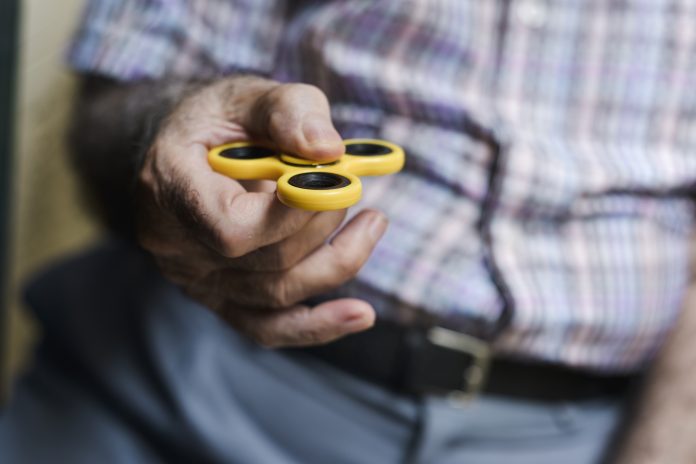Fidget spinners were originally designed as a toy that could help those who fidget. They relieve anxiety, help lessen nervous energy and stress. They are small ball-bearing devices that the user can rotate between their fingers. For some, they have turned into a distraction rather than an implement that will help you focus. Can they be of benefit to seniors?
For those with dementia and Alzheimer’s disease engaging in an activity of some sort is crucial to their health. There are other ways these patients and other seniors can benefit from fidget spinners.
Benefits:
- Those with dementia and Alzheimer’s are often agitated. A fidget spinner can help to soothe them. It also helps them to stay focused on an activity.
- Arthritis is very common as we age. Spinners, since they fit into your hand, are one way to strengthen finger and hand muscles and maintain dexterity. This helps with pain and stiffness in the joints.
- Seniors can connect with their grandchildren by using fidget spinners. Since the toy is considered a craze right now, children will think it’s great that grandma or grandpa are enjoying the same things they play with.
Although there are naysayers to the benefits of using fidget spinners, when you look back, adults have always had certain items they fidgeted with. The most common were paper clips, pencils and, for those who were serious about de-stressing, stress balls. All of these have at one time or another, probably needed help with focusing and attention span. Many of us have favorite objects, such as stones, that we carry with us. They help to keep us calm and become more relaxed.
Fidget spinners are one more item to add to the arsenal of items which will help Alzheimer’s and dementia patients. Besides the fidget spinner, there are other items available such as fidget cubes. Get one for your loved one or for your patient if you are a caregiver and see if it will have results. Anything that can improve your loved one’s health and keep them focused will be a benefit.
























